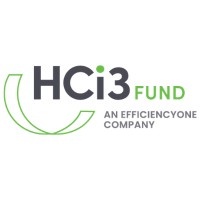
Open
Nova Scotia innovation equity tax credit
Last Update: October 27, 2025
NS, Canada
Tax incentive encouraging investment in innovative Nova Scotia businesses
Tax Credits
At a glance
Funding available
Financing goals
Develop a new product
Integrate new technologies
Research and experimental development
Eligible Funding
- Maximum amount : 5,000,000 $
- Minimum amount : 1,000 $
- Up to 45% of project cost
Timeline
- Unspecified
Eligible candidates
Eligible Industries
- Manufacturing
- Professional, scientific and technical services
- Health care and social assistance
Location
- Nova Scotia
Legal structures
- For-profit business
Annual revenue
- All revenue ranges
Organisation size
- 100 employees maximum
Audience
- Canadians
- Startups
Overview
The Nova Scotia Innovation Equity Tax Credit provides a non-refundable income tax credit to encourage investments in eligible Nova Scotia small and medium-sized corporations engaged in innovative activities. Investors may receive tax credits on eligible investments, supporting up to $5 million per corporation, for activities related to research, development, or commercialization of new technologies, products, or processes.
Activities funded
- Development or implementation of new technologies within a business.
- Research and development projects aimed at commercialization of new products, services, or processes.
- Application of existing technologies in new ways to create innovative products, services, or processes.
Examples of admissible projects:
$ 35,000
Piloting a compost collection program for local restaurants
$ 74,000
Modernizing a textile cooperative’s cutting and sewing facility
$ 40,000
Developing a bilingual digital arts workshop for newcomers
$ 64,000
Automating small-scale bakery production with dough handling machinery
$ 45,000
Implementing energy-efficient refrigeration in a community grocery store
$ 50,000
Launching an adaptive technology program for youth with disabilities
Eligibility
- The applicant must be a Canadian Controlled Private Corporation carrying on business in Nova Scotia and registered in Nova Scotia.
- The company must have been incorporated less than 10 years ago and have its head office in Nova Scotia.
- The company must have fewer than 100 employees and less than $15 million in assets (including associated corporations).
- The company must be developing or implementing new technologies, or applying existing technologies in a new way to create new products, services, or processes.
- At least 50% of the company’s remuneration must be paid to employees or full-time contractors who are residents of Nova Scotia and report to or deal with a permanent establishment in Nova Scotia.
Who is eligible?
- Small and medium-sized corporations engaged in innovative activities
- Companies developing or implementing new technologies
- Businesses applying existing technologies in new ways to create new products, services, or processes
- Enterprises in the oceans technology sector
- Enterprises in the life sciences sector
Who is not eligible
- Companies whose main activities are construction, real estate development, leasing or selling property, or hotel ownership and management.
- Businesses primarily engaged in retail (including food and beverage services).
- Firms involved in oil or gas exploration, development, or production.
- Companies active in the film industry or those receiving Film Industry, Digital Media, Digital Animation, or Capital Investment Tax Credits.
- Professional practices such as accountants, lawyers, dentists, doctors, veterinarians, and chiropractors, incorporated for self-regulated activities.
Eligible expenses
- Business activities of the approved corporation in Nova Scotia.
- Hiring expertise or purchasing materials and equipment that cannot be sourced in Nova Scotia (if necessary to obtain outside the province).
- Purchase of land required for the corporation's active business.
Eligible geographic areas
- Companies carrying on business in Nova Scotia and registered in Nova Scotia.
- Companies with their head office in Nova Scotia.
How to apply
- Step 1: Application for Approval (Certificate of Registration)Download and complete the application form from the Nova Scotia Department of Finance and Treasury Board website.
- Obtain signatures from an authorized officer of the applicant corporation (electronic signatures are accepted).
- Prepare and attach the following documents:Financial statements (for the previous tax year), with review engagement report or auditor’s report for the applicant corporation and all associated corporations (not required if recently incorporated).
- T2 Corporate Income Tax Returns for the applicant corporation and all associated corporations (not required if recently incorporated or in first tax year).
- Up-to-date and notarized shareholder register with complete share transaction history.
- Corporate chart/structure (if applicable).
- Shareholder agreements (if any).
- Debenture agreements (if any).
- Proposed investor forms for all eligible investors (available on the Department’s website).
- A brief business plan (2-3 pages max), including business activities, technology development/application, funding use plan and timeline, directors’ list, and total amount raised to date.
- Certificate of incorporation, constitution/articles of incorporation, and memorandum of association (unless previously submitted and unchanged).
- Submit the complete application package by email to the IETC administrator (paper copies are not accepted).
- Step 2: Issuance of Eligible InvestmentsUpon approval, receive a certificate of registration specifying the eligible period for raising funds.
- Issue eligible investments (common voting shares, eligible preferred shares, or eligible convertible debentures) to eligible investors within the certificate’s timeframe.
- Step 3: Application for Tax Credit CertificatesAfter the specified issue is complete, compile required documents:
- Signed statement from an authorized officer (form available on Department’s website).
- Updated and notarized shareholder register.
- Investor Data Report (Excel format, available on Department’s website), listing all eligible investors and investments made during the certificate period.
- Copies of each share certificate or convertible debenture issued to eligible investors, showing terms.
- Signed statements from each eligible investor (form available on Department’s website).
- Proof of payment from each eligible investor (amount and date of investment).
- Send the application for tax credit certificates by email to the IETC administrator (no paper copies accepted), as soon as possible and within 6 months after the expiry date on the certificate of registration.
- Step 4: Submission of Annual ReturnsFor each of the 4 years after expiry of the certificate of registration, submit an annual return within 6 months of the approved corporation’s tax year end.
- Annual return should include:
- Annual Report (signed by an authorized officer; form available on Department’s website).
- Up-to-date and notarized shareholder register.
- Financial statements for the previous tax year, with review engagement report or auditor’s report.
- T2 Corporate Income Tax Return for the previous tax year (with forms and schedules).
- Send the annual return via email to the IETC administrator (paper copies not accepted).
Additional information
- Investors must hold their eligible investment for a minimum of 4 years to avoid tax credit repayment, with specific exceptions such as investor death or amalgamation.
- Funds raised through the IETC cannot be used for prohibited purposes such as lending, acquiring securities, or paying dividends, among others.
- If a corporation’s approval is cancelled, penalties can be imposed up to the total tax credits issued to all eligible investors across all specified issues.
- All application documents must be submitted via email; paper copies are not accepted.
Apply to this program
Frequently Asked Questions about the Nova Scotia innovation equity tax credit Program
Here are answers to the most common questions about the Nova Scotia innovation equity tax credit. This section explains what the program is, how much funding is available, eligibility requirements, application deadlines, and other important details to help you determine if this grant is right for your business.
What is the Nova Scotia innovation equity tax credit?
How much funding can be received?
Who is eligible for the Nova Scotia innovation equity tax credit program?
What expenses are eligible under Nova Scotia innovation equity tax credit?
Who can I contact for more information about the Nova Scotia innovation equity tax credit?
Where is the Nova Scotia innovation equity tax credit available?
Is the Nova Scotia innovation equity tax credit a grant, loan, or tax credit?
Apply to this program
More programs like this

Loans and Capital investmentsOpen
Regional Economic Growth through Innovation (REGI) — Business Scale-up and Productivity — ACOA
Atlantic Canada Opportunities Agency (ACOA)Financing to accelerate growth in Atlantic Canada

Grant and FundingClosed
Youth Climate Action Fund
Halifax Climate Investment, Innovation and Impact Fund (HCi3)Empowering youth to innovate for climate change solutions

Grant and FundingOpen
ACOA Jobs and Growth Fund — For Profit
Atlantic Canada Opportunities Agency (ACOA)Money to future-proof your Atlantic Canada for-profit business

Grant and FundingClosed
Job Creation Partnerships (JCP)
Government of Nova ScotiaSupport for Nova Scotia workers’ skills development

Researchers And FacilitiesOpen
Invest Nova Scotia — Incubation
Government of Nova ScotiaIncubation facilities for Nova Scotia innovators

Grant and FundingOpen
Centre for Women in Business
Centre for Women in BusinessTraining and events for Nova Scotia women entrepreneurs

Wage Subsidies And InternsOpen
Clean Leadership Summer Internships — Nova Scotia
Clean FoundationWage subsidies to hire students looking for careers in the clean economy

Tax CreditsOpen
Nova Scotia digital media tax credit
Government of Nova ScotiaRefundable tax credit for interactive digital media development in Nova Scotia

Wage Subsidies And InternsOpen
Clean Foundation — Green Jobs
Clean FoundationSubsidy to hire interns in the natural resources sector

Wage Subsidies And InternsOpen
START Program
Government of Nova ScotiaFinancial incentives for Nova Scotia employers with a labour need
Sign up to our platform to access the Nova Scotia innovation equity tax credit information sheet for free
Get access to 4,000+ programs, practical guides, personalized alerts, and an AI assistant to support your grant applications.